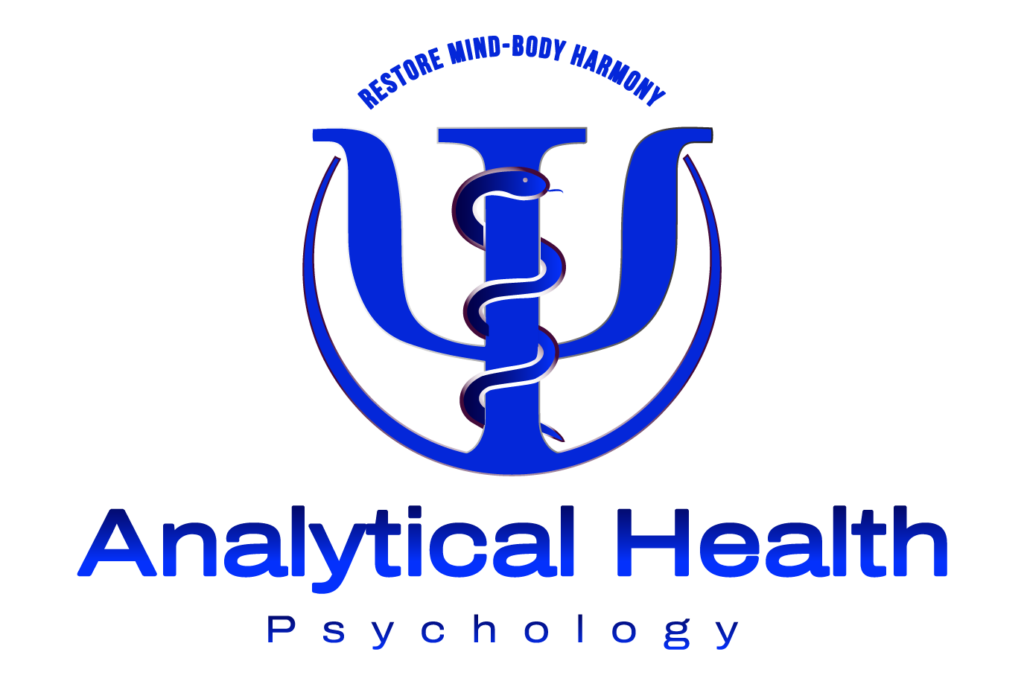What is AHP
Analytical Health Psychotherapy (AHP) is a specialized insight-oriented approach to Health Psychology developed by Clinical Health Psychologist Raymond Bradni, PhD., focusing on effective treatments of mind-body disorders. AHP focuses on treating disorders related to the challenging interaction between the mind and body, aiming to restore mind-body harmony. The AHP clinician will help the patient identify the psychological roots of their physical symptoms through psychoanalytic and psychodynamic approaches, creating an opportunity to grow beyond symptom reduction.
AHP Model
Let's Think Together
In my therapeutic approach, we will explore your experience of mind-body (psychosomatic) dysregulation that caused the physical symptoms, such as gastrointestinal problems (e.g., Irritable bowel syndrome (IBS), functional nausea, functional abdominal pain, chronic pain, trauma-related weight gain, sleep-wake cycle dysregulation, etc.
Let's Think Together
In my therapeutic approach, we will explore your experience of mind-body (psychosomatic) dysregulation that caused the physical symptoms, such as gastrointestinal problems (e.g., Irritable bowel syndrome (IBS), functional nausea, functional abdominal pain, chronic pain, trauma-related weight gain, sleep-wake cycle dysregulation, etc.
Let's Start Together
Metaphorically speaking, our therapeutic relationship will function as a container that holds complex emotions so we can explore, tolerate, and process them without judgment. As a result, your body will be relieved from its containing function, and the physical symptoms will diminish. In our therapeutic journey, you will access your strengths, invest your mental energy in restoring your mind-body harmony, and actualize your capacities. Our journey is not a talking cure but a transformative relational cure rooted in neuroscience, health psychology, and psychoanalysis, leading to effective coping, increased insight, and long-lasting therapeutic gains.
Let's Plan Together
Mind-body (psychosomatic) dysregulation is challenging and complex and primarily associated with difficult emotions (e.g., anxiety, depression, anger, guilt, etc.), relational difficulties (e.g., social isolation), and self-esteem concerns. We reflect together to create a treatment plan focusing on your short-term and long-term goals. In our journey, we employ complex evidence-based therapeutic techniques, such as Clinical Hypnosis, Free Association, Dream Work, and other depth-oriented strategies supported by neuroscientific findings about the human mind.
Children 7+ years and older
I offer neurodevelopmentally appropriate treatment to children and engage their parents as an essential part of the teamwork. As a graduate researcher, I was privileged to observe parent-child interactions and, through receiving supervision and scholarly work, learned about effective treatment modalities for children based on their personal and biopsychosocial backgrounds. I utilize a variety of psychodynamic and neuroscientific findings to develop a treatment plan that meets the child’s needs.
Adolescents
Adolescence is an impactful period, and formulating a developmentally appropriate treatment is essential for a desirable outcome. My treatment philosophy for adolescents is to function as a reliable companion in their journey who respects their autonomy, explores their strengths, and helps them actualize their capacities. As part of the treatment plan, I provide psychoeducation to their parents about the adolescents’ neurobiological, developmental, and attachment organizations, as their contribution would be crucial in achieving desirable outcomes.
Adults
As an insight-oriented approach to Health psychology, AHP treatment for adults will have two phases: Supportive and Analytical.
Supportive Phase
In the supportive treatment phase, which lasts approximately 12-15 sessions, the clinician and the patient establish a therapeutic alliance, practice coping strategies to reduce the physical symptoms and explore how the mind and body interact. The primary goal of the supportive phase is symptom reduction, regaining daily functioning, and establishing a solid ground for the Analytical phase. At the end of the first phase, the clinician and patient would collaboratively decide to continue care to the analytical phase as needed.
Analytical Phase
The primary goal of the analytical phase is to gain insight into the origins of emotional distress and inner conflicts that manifest in physical symptoms. The frequency and length of the treatment depend on several factors, including the intensity and complexity of the emotional challenges and inner conflicts, socio-cultural background, and the nature of the identified psychological complexes. Unlike the traditional psychoanalytic approach, the AHP clinician may meet once or twice weekly or less frequently with the patient while monitoring the mind-body harmony and modifying the therapeutic approach as needed. The AHP clinician and patient would decide about the termination of therapy collaboratively.

Children 7+ years and older
I offer neurodevelopmentally appropriate treatment to children and engage their parents as an essential part of the teamwork. As a graduate researcher, I was privileged to observe parent-child interactions and, through receiving supervision and scholarly work, learned about effective treatment modalities for children based on their personal and biopsychosocial backgrounds. I utilize a variety of psychodynamic and neuroscientific findings to develop a treatment plan that meets the child’s needs.

Adolescents
Adolescence is an impactful period, and formulating a developmentally appropriate treatment is essential for a desirable outcome. My treatment philosophy for adolescents is to function as a reliable companion in their journey who respects their autonomy, explores their strengths, and helps them actualize their capacities. As part of the treatment plan, I provide psychoeducation to their parents about the adolescents’ neurobiological, developmental, and attachment organizations, as their contribution would be crucial in achieving desirable outcomes.
Adults
As an insight-oriented approach to Health psychology, AHP treatment for adults will have two phases: Supportive and Analytical.
Supportive Phase
In the supportive treatment phase, which lasts approximately 12-15 sessions, the clinician and the patient establish a therapeutic alliance, practice coping strategies to reduce the physical symptoms and explore how the mind and body interact. The primary goal of the supportive phase is symptom reduction, regaining daily functioning, and establishing a solid ground for the Analytical phase. At the end of the first phase, the clinician and patient would collaboratively decide to continue care to the analytical phase as needed.
Analytical Phase
The primary goal of the analytical phase is to gain insight into the origins of emotional distress and inner conflicts that manifest in physical symptoms. The frequency and length of the treatment depend on several factors, including the intensity and complexity of the emotional challenges and inner conflicts, socio-cultural background, and the nature of the identified psychological complexes. Unlike the traditional psychoanalytic approach, the AHP clinician may meet once or twice weekly or less frequently with the patient while monitoring the mind-body harmony and modifying the therapeutic approach as needed. The AHP clinician and patient would decide about the termination of therapy collaboratively.
